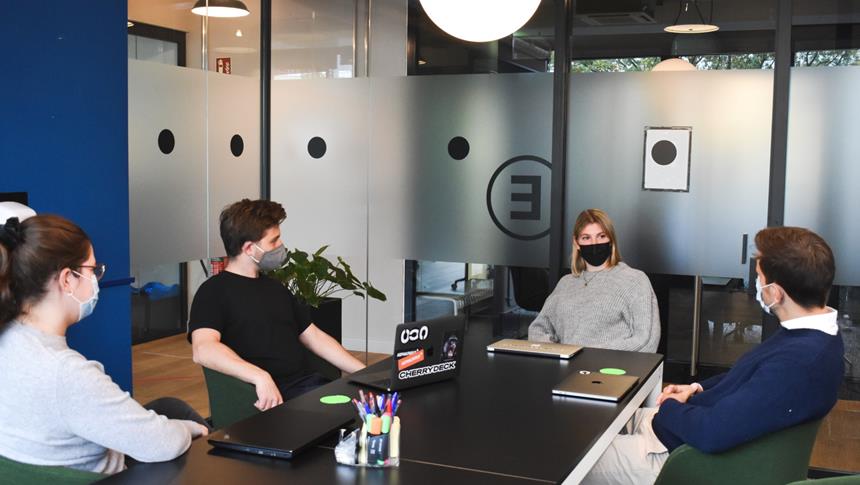The pandemic has impacted a lot of industries, including creative businesses. Freelance artists and creators are finding it harder to secure well-paid gigs and projects and the art world has also taken a hit from a decrease in potential art investors.
As we enter 2021, does this trend mean that the creative art industry is going to experience sluggish growth this year? There’s plenty of evidence that proves otherwise.
Read ahead to get a sneak peek into what the upcoming year could mean for businesses in the creative arts industry. You can also walk away with some promising alternative domains in which can utilise your creativity and artistic abilities.
How did the pandemic impact the creative arts industry?
The global lockdown at the start of 2020 led to the temporary closure of cultural institutions and art businesses across the world. However, as per a UNESCO report, the demand for creative artworks and products in digital forms grew.
Artists across the world have responded creatively to the lockdown. While some artists live-streamed their events like concerts and seminars, others took over their social media handles like TikTok to create their own success stories. More prominent organisations like museums are also pitching to restore the creative arts industry through virtual tours of their collections.
A great example here is the musicians from the Rotterdam Philharmonic Orchestra. They recorded a virtual edition of Beethoven’s Ode to Joy from their homes and uploaded it on YouTube. The video had more than two million views in less than two weeks and brought in many virtual gigs for the orchestra.
Creative art consumption in the year ahead
Contrary to popular belief, social or economic uncertainty can actually be productive for the creative arts industry. The role of art and culture during economic instability is widely acknowledged. Some of the most significant art movements such as expressionism and modernism emerged during tumultuous times of political and economic instability.
Popular media outlets such as the Washington Post and the Atlantic predict that most art businesses will turn to more remote working models. This can allow professionals like graphic or fashion designers to deliver work from any location using a computer and high-speed internet.
Freelancers need not despair either. They can use free branding tools online to create their brands in easy and inexpensive ways. Social media is also expected to be a powerful promotional platform for freelance artists and creative businesses.
Want to get an overview of your skills that can fit in a creative business? A foundation year in creative business can help you gain the relevant innovation and problem-solving skills required to run a business in the creative domain.
The creative business course from the London College of Contemporary Arts (LCCA) will cover essential business management and marketing skills required for a creative career. The course can also act as a prelude to a good bachelor’s programme, such as an art and design foundation course.
You can rest assured about the quality of this foundation degree in London as it is accredited by the University for the Creative Arts.
Check out the programme details in-depth on the LCCA website.
Other industries that need creative artists and businesses
Despite the staggering growth during the pandemic, there is enough reason to believe that creative industries will boom in the UK and across the rest of the world. A Gov.UK report expects the digital, culture and media sectors to be valued at more than £286 billion by the next year.
Another Gov.uk survey reports that the UK’s creative industry revenue has already broken the £100 billion barrier.
You also can take assurance from the fact that an art degree can also have applications in other domains and the creative industries. Here are a few exciting examples.
- Sales and marketing: With client satisfaction driving promotional and sales campaigns, creativity and a strong knowledge of art can be big bonuses in the sales and marketing industry. You can play around with different marketing ideas and engage in creative collaborations to establish your brand in the relevant sector.
- Project management: Few know that creativity is actually an essential value in managing any kind of project. You should have the ability to visualise a project and manage it in creative ways. Creativity can also inspire excellent problem-solving skills and an innovative spirit.
- HR management: A background in creative arts can allow you to find ways to connect with your employees in exciting and expressive ways. You also build the ability to translate ideas into actionable strategies.
A degree in creative business management can help you take advantage of the promising prospects in the creative business industry. Start exploring appropriate art foundation courses in London today to get started on your creative business career.


 What’s on in London – February 2021
What’s on in London – February 2021  Keeping up with culture
Keeping up with culture  Importance of foundation degrees post-pandemic
Importance of foundation degrees post-pandemic